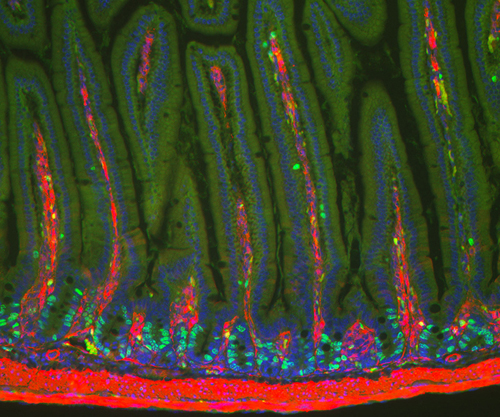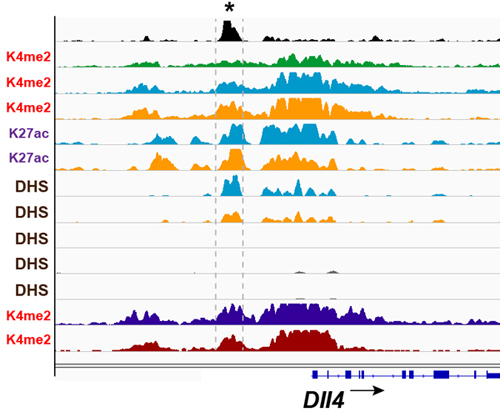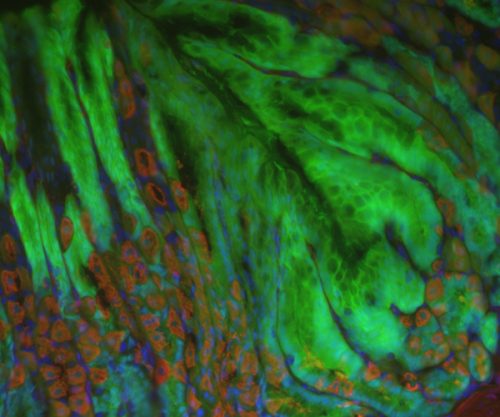How are different organs and cell types generated from stem cells?
Our research group investigates the mechanisms of gut stem cell niches in development and disease:
How do the environment and surrounding tissues interact with stem cells to maintain homeostasis?
How is normal developmental and stem cell homeostasis altered in cancer and inflammation?
- To address these questions, we apply a combined approach of mouse genetics, stem cell organoid culture, epigenomics and genomics. In humans, the average gut length is about ten metres, and the gut epithelium self-renews rapidly by the activity of stem cells throughout life. These stem cells differentiate into distinct cell types for food digestion (stomach) and absorption (intestine). Since it is a common target of diseases such as cancer, peptic ulcers, and inflammatory bowel disease, we use the gut as a model system.


- It is known that developmental programs are frequently reactivated in cancer. We hypothesize that the mechanisms underlying gastrointestinal organ specification, morphogenesis, and growth are abnormally reactivated and/or altered in cancer and inflammation. Gastrointestinal stem cells interact with adjacent tissues and the environment. Since epigenetic and transcriptional control lie at the heart of all stem cell properties, we study the chromatin and transcriptional mechanisms by which the environment and surrounding tissues influence stem cell renewal and differentiation.
- Our long-term goal is to understand disease mechanisms by developing novel mouse models for gastrointestinal cancer and inflammatory bowel disease. We also investigate how altered stem cells and their niches influence disease initiation and progression. We are confident that a better understanding of stem cell homeostasis in gut development and disease will enable the development of new therapeutic targets for lethal digestive tract cancers and regenerative medicine.



